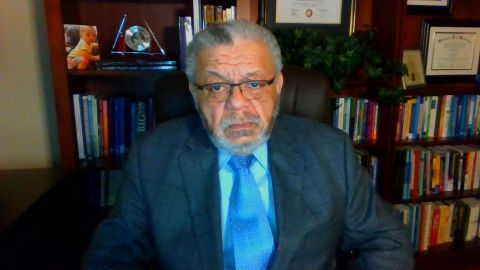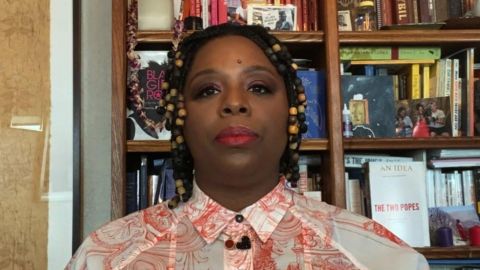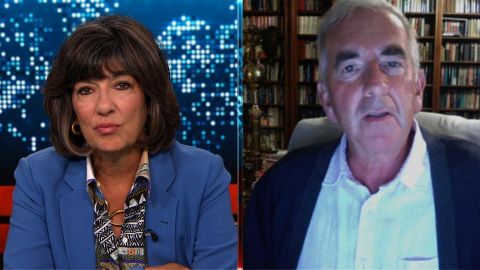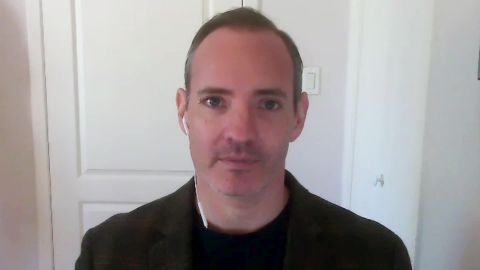Read Transcript EXPAND
ROBERT HARRIS, FRIEND OF SIR HAROLD EVANS: Well, I was in touch with Tina Brown, Harry’s wife, last weekend and she told me that Harry was sinking rather. And so, I was kind of braced for the news. It still is a great shock. He was as unlike a 92-year-old, as you could imagine, a man to be. He was like someone 30 years older. He had a kind of Peter Pan youth about him and vigor. He was a man of great charm and energy and enthusiasm. He was a force of nature and force of life. So, when someone like that dies, it always is a big shock and the world seems a little bit grayer and a little bit sadder without Harry in it tonight.
CHRISTIANE AMANPOUR: I agree with you. I had the opportunity to know him, to interview him several times alongside Tina Brown. Both of them were a major, you know, in the vernacular power couple but a real force for transformative change in their careers. You wrote that a world without Harry Evans will be a more boring world. Let’s just also talk about his journalistic legacy because he was terribly young. I mean, he left school at 16 and he managed to climb the ladder of first regional newspaper and then the “Sunday Times” and then the “Times.” I mean, the most illustrious newspapers, certainly in this part of the world at the time. Give us a sense of what drove him, what created this legend.
HARRIS: Well, I think you put your finger on it there. He left school at 16 and started work during the Second World War just on ordinary local papers, covering all the boring extraordinary things that go on in a small town. You know, the courtroom, the cake store, you know, the pub and it got a grounding in ordinary life in journalism. Then he did his national service. Then he managed to get to the Durham University and that really probably was the start of things for him. Opening up new horizons. He won a Harkness scholarship and so he was able to travel to America in the 1950s. And that began a real love affair with America. He loved — he absolutely loved the United States. And an interesting campaigning journalism because he was covering the early civil rights days. And when he returned to the North of England, he started as a young editor of a paper. And he was a campaigning local newspaper editor of a sort that perhaps is more familiar in the United States, or was, than here. And he came to the attention of Fleet Street in London. And, in 1967, when he was still only in his 30s, he landed what is probably the biggest job in British journalism, which is the editorship of “The Sunday Times.” And he bought that dynamism and that outsider/insider quality, which made him so formidable, I think.
About This Episode EXPAND
Black Lives Matter co-founder Patrisse Cullors reacts to the news that none of the officers involved in Breonna Taylor’s death will be charged with her killing. Charles Ramsey joins the program to give his take. Novelist Robert Harris reflects on the passing of legendary journalist Sir Harold Evans. BuzzFeed Media Editor Craig Silverman analyzes recent allegations against Facebook.
LEARN MORE



